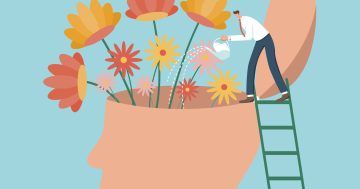
Eat better, drink less, yoga more, ditch the caffeine … or, we could be more honest with ourselves on NYE. Photo: Emma Bickley.
There are two ways one can choose to view the new year: as an opportunity for change and growth, resetting the sins and failures of the prior year with optimism for the future; or as another depressing reminder of the endless march of time, which does nothing but reinforce our human inability to better ourselves.
Just as a puppy is for life, not for Christmas, resolutions are forever, not just for New Year’s Eve.
And yet, despite painstakingly writing mine out each year, I get further from achieving them with each passing 1st of January.
Inevitably, the demands of everyday life that cycle around the 9-5 workday make it impossible for me to eat better, do yoga every day, save more money, spend more time doing creative things, cut down on coffee, etc etc.
It’s not so much that normal life gets in the way of me doing these things, so much as normal life reduces my self-control and willpower to do these things.
I’m sure there are those among us who thrive each year and kick their resolutions out of the park. I don’t know any of you, but I have no doubt a few of you will comment to make yourselves known.
The older and more cynical I get though, the more I am frustrated by the idea of self-improvement.
The thought of being a better version of myself isn’t so much motivating as it is anxiety-inducing, as a niggling constant reminder that the actual version of myself isn’t good enough.
But unfortunately for cynics (or realists?) like me, the self-improvement ideology is no longer contained to New Year’s Eve – it’s now a continuous doctrine that seeps through the entire year, fed to us through targeted Instagram ads for devices that will reduce cellulite in our legs, through to the listicle articles that entice us to think of three new habits to reset our years after the flush of January has faded into the mundanity of March.
I have to wonder if it’s all just part of the end result of evolution where all of the genuine pressures of survival have been largely tended to for the middle-class masses, so the anxiety and energy we would normally place into staying alive is now directed at being as truly alive as possible?
The definition of the latter is based on ever-shifting goal posts that define living as being thinner, smarter, kinder, more woke, richer, and fitter than we are now.
This year, I’m going to resist the urge to join the self-improvement bandwagon, and instead am going to resolve to judge myself by who I am today, not who I could be in the future if only I tried a little harder.
My resolutions are going to be about other people and not myself.
For example, I’m going to resolve to not look at my phone when other people are talking, so that I actually listen to and engage with the people I love. And I’m going to resolve to give my undivided attention to my nieces and nephew whenever I see them because it won’t be long before they’re ignoring me in favour of their smartphones as teenagers.
I also resolve that any time someone asks me how I am, I am not going to say ‘busy’ because busy is not an emotion, and I don’t need to inflate my sense of self-importance as much as I need to be honest with people who care enough to ask how I am.
I’m sure I’ll fail at these, and it won’t be long before I’m enrolling in yet another fitness app or buying expensive ingredients for healthy meals I’ll never cook, but that I want to be the type of person to eat.
But I do think it’s time to stop living for the myth of the person I could be, and to start living fully as the person I am, with no self-improvement plans on the agenda.
Original Article published by Zoya Patel on The RiotACT.
















